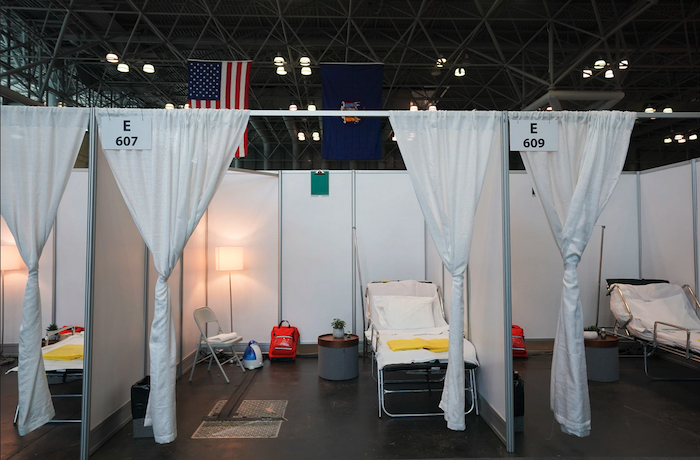
About a month before the coronavirus pandemic engulfed us, my mother understood that she was dying. She had cancer. She had struggled to swallow food and maintain her weight. She was so light that I could lift her like a 12-year-old. On her firm instructions, the ambulance we children had arranged to take her to the oncologist was rerouted to a hospice. There, she received tender and expert end-of-life care. After four days, she died: peacefully, without pain, and with her family around her.
Today, this memory feels weirdly distant. In Italy and Spain — and soon in other countries — patients are dying in opposite conditions to the ones my mother experienced. They go to hospitals hoping for treatment. But, for lack of ventilators, some of them die gradually, alone. Visits from loved ones are often prohibited.
The flood of commentary on the pandemic focuses, correctly, on how to reduce fatalities. But we should also consider how to ease the loneliness and pain of those deaths that are inevitable. No one wants to die slowly in a medical hangar, cut off from family and friends. Rather, most want something as close as possible to what my mother had. They want to choose their own balance between prolonged life and prolonged pain. They hope to have the right to reconsider their choices.
Of course, in the current crisis, the hospices cannot serve everybody, and infectious disease presents risks to caregivers that cancer does not. The imperative is, therefore, to give people the tools to manage death at home, as humanely and safely as possible. Yet this component of our response to the pandemic is missing. We have not grappled with the need to distribute morphine to those who are suffering, even if this is a risky course, as the opioid crisis makes obvious; once we have finally supplied our medical professionals with the masks and other protective gear they need, we need to do the same for family caregivers. But we do not discuss these things, because we are determined to resist death, not dwell on the question of how we might go about dying.
My mother’s last lesson to her children was that this obstinacy is mistaken. While I was vainly learning all I could about her treatment options, she was coming to terms with the reality she could feel around her liver. “No more abracadabra,” she told me fiercely, when I protested that it was too early to give up. She knew she would soon die, and she wanted a good death.
A good death requires lucidity, not magical thinking. Today, this means confronting the reality of overloaded hospitals, and being honest about their inability to help all those who are stricken. In Italy, doctors have had to perform a kind of triage normally seen in wartime: They allocate life-saving ventilators based on age and health status. The same has happened in Madrid, where hundreds queue to be admitted to emergency rooms. Countries such as the United States and Britain will be lucky to escape this fate. New York’s governor, Andrew M. Cuomo, has repeatedly sounded the alarm about the shortage of ventilators. “You’re going to be thousands short. Thousands,” he said on March 15.
Hospitals don’t like to talk about the terms of the triage. Like the rest of us, they prefer to focus on preventing death; they recoil from being explicit about when death might have to be accepted. As a recent article in the New England Journal of Medicine noted, the absence of clear guidelines burdens front-line clinicians, who are forced to make heart-rending choices — doctors in Italy have wept under the pressure. But the absence of clear guidelines also leaves citizens adrift. If you or I fall seriously ill, will we have access to a ventilator?
Last week, two medically connected relatives called me. Being well informed and 70, they both know they fall on the wrong side of any triage. They have therefore resolved that, if their lungs begin to fail, they will avoid going to the hospital. At 70 — even in their 80s — patients still have a good chance of surviving covid-19 at home. But if they do not, my relatives’ definition of a good death is to be together at the end, even at the risk that one will infect the other. All that they ask is access to the palliative drugs that will control the suffering.
Society should think about the millions of people who are not medical insiders, and who should be helped to understand the choices that may potentially confront them. No doubt if governments and hospitals made public their criteria for triage, people would be horrified. But at least they could decide whether to seek help at a hospital or remain in their own beds. And the medical authorities, having leveled with the citizens, could be more forthcoming about the help available at home. To anyone who has witnessed death, it would be a huge relief to know that at least the pain can be managed. Death will be inevitable for each of us, one day. Terrible suffering should not be.
Complete Article ↪HERE↩!
